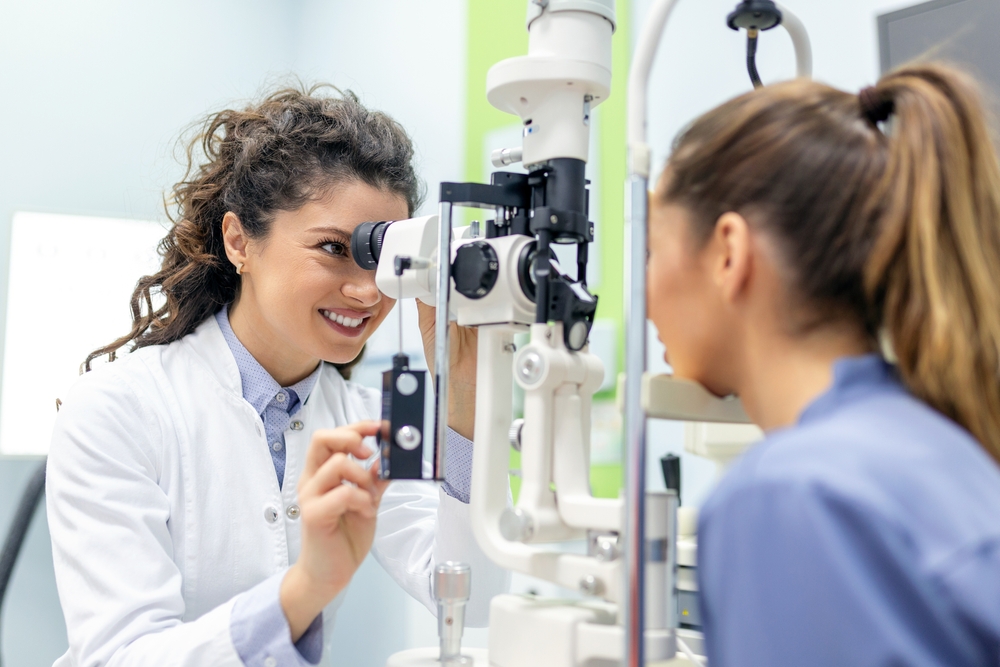
Eye exams are not just for those who require vision correction. They are for everyone, including those with perfect vision. Eyes are the windows to your body and can reflect your health condition. Routine exams are essential to ensure good eye health and boost overall well-being.
Unfortunately, many people fail to schedule regular eye checks, which can lead to severe conditions going undetected. Here is the importance of routine eye exams for ocular health and what to expect at the first appointment.
Scheduling an Eye Exam
Do not wait to experience a vision or eye problem to visit a doctor. You should schedule regular visits with an optometrist or ophthalmologist for comprehensive eye exams. Comprehensive eye exams differ from routine screening, which helps detect vision issues. An eye exam will check vision but also screen for eye diseases. The frequency of eye exams depends on your age and eye condition.
What Eye Exams Evaluate
Comprehensive eye exams can provide information on your vision and eye health. They can indicate whether you need vision correction and measure your prescription. An eye doctor will check for eye-related issues, such as:
- Refractive errors, including myopia, hyperopia, astigmatism, and presbyopia
- Vision changes that can be a sign of an eye disease
- Problems with eye muscles, such as amblyopia (lazy eye) and strabismus (crossed eyes)
- Eye diseases, such as cataracts, glaucoma, detached retina, and macular degeneration
- Eye tumors or cancers, including intraocular cancer and retinoblastoma
Prompt diagnosis of eye diseases can increase the chances of successful treatment outcomes.
Detecting Health Issues
An examination of the eyes can help to detect various health conditions. Examining the optic nerve can provide valuable information on an individual’s health. The nerve transmits messages from the eye to the brain.
A change in its appearance can indicate a health problem. If the exam detects abnormalities in the size, color, or shape, it can help to identify various health conditions. Doctors can identify diseases such as diabetes, high blood pressure, arterial disease, lupus, multiple sclerosis, and sickle cell disease.
Preventative Eye Care
Comprehensive eye exams are preventative. They are just as essential as annual physical exams. Even if the eye doctor does not detect any anomalies, a record of the exam results helps with ocular health monitoring. The doctor can compare past and current results to determine whether you are at risk of developing an eye disease. If the doctor detects an issue, ongoing monitoring of the condition can help with the implementation of effective management.
What to Expect at Your First Appointment
During the exam, the doctor will conduct several tests:
- Patient history: The doctor will evaluate your family and health history.
- Visual acuity testing
- Preliminary tests, including color vision, depth perception, eye muscle movements, and peripheral vision
- Keratometry or topography to measure the eyes for lenses
- Refraction testing
- Eye focusing, eye movement, and eye teaming tests
- Eye health evaluation
The results of the test will determine whether you require supplemental testing.
A comprehensive exam usually requires pupil dilation. It will leave your eyes blurry for several hours after the exam. Wear sunglasses to protect your eyes before your pupils shrink back.
For more on the importance of routine eye exams for ocular health and what to expect at the first appointment, visit Northgate Vision Associates. Our office is in Hixson, Tennessee. Call (423) 693-2020 to book an appointment today.







